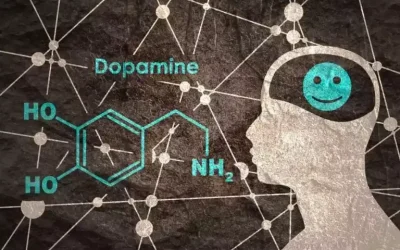Alcohol and Sleep-Related Problems PMC
In summary, alcohol misuse (heavy alcohol use and AUD) appears to be linked in a bi-directional fashion to sleep-related problems such as insomnia and circadian rhythm abnormalities. The recommended treatment Alcohol insomnia: Causes and Ways to Eliminate for insomnia disorder in the community, as well as those with AUD, is CBT-I. Alcohol is highly effective at suppressing melatonin, a key facilitator of sleep and regulator of sleep-wake cycles.
Sleep Products
5 Drinks That Help You Sleep – Health.com
5 Drinks That Help You Sleep.
Posted: Mon, 17 Jul 2023 07:00:00 GMT [source]
These symptoms can range from mild to severe but often include significant disruptions to sleep. In summary, the preponderance of studies report subjective and objective increase in sleep onset latency and sleep fragmentation with consequently decreased TST in actively drinking subjects with AD. In the first half of the night, when the body is metabolizing alcohol, studies show people spend more time in deep, slow-wave sleep and less time in REM sleep. Sleep architecture is biologically driven and finely calibrated to meet the body’s needs during nightly rest—changes to the natural, typical structure of sleep aren’t generally good for health or well being. REM sleep, which gets shortchanged in the first half of the night under the influence of alcohol, is important for mental restoration, including memory and emotional processing. Alcohol is the most common sleep aid—at least 20 percent of American adults rely on it for help falling asleep.
How Your Body Metabolizes Alcohol
Alcohol (ethanol) depresses (slows down) your central nervous system (CNS). If you consistently consume significant amounts of alcohol, your CNS gets used to this effect. Your CNS must work harder to overcome the depressant effects of alcohol to keep your body functioning. Go to the nearest emergency room or call 911 (or your local emergency service number) if you or a loved one has any concerning symptoms of alcohol withdrawal.
How to Stop Alcohol Insomnia in Casual and Problem Drinkers: Why It Happens and What to Do

In another study, a higher prevalence rate of SDB was seen in treatment-seeking patients with AD (41%), as compared to control subjects (23%). In this study, SDB was a significant contributor to sleep disturbance in a substantial proportion of male AD subjects above the age of 40 years (Aldrich et al., 1993). To the best of our knowledge, there is no data on the association of AD with central sleep apnea in the absence of other risk factors, such as comorbid congestive heart failure and opioid use. During the second half of the night, sleep becomes more actively disrupted. The rebound effect may include more time in REM—a lighter sleep stage from which it is easy to be awakened.

Remedy #1: Herbs For Sleep
This is a tricky process, because everyone’s biochemistry is different. Since insomnia is merely a symptom of biochemical imbalance caused by prolonged drinking and/or withdrawal, there is no one-size-fits-all approach. Once we grasp the importance of biochemical balance, we can see why band-aid approaches to falling asleep RIGHT NOW (e.g., popping an Ambien) aren’t always best. I know this because I’m now an average person who has occasional insomnia.
Insomnia After Quitting Alcohol: A Detailed Look at Causes and Solutions
- You may also experience insomnia and sleep disturbances when drinking and years after you’ve quit.
- Going sober isn’t always easy, though, and it may not be safe to quit alcohol cold turkey.
- They may believe it reduces their anxiety over the day’s events and helps them get to sleep.
- It’s best to treat any co-occurring disorders with proper detoxing from alcohol use to avoid severe withdrawal symptoms.
- If you’re turning to alcohol to help you sleep, you may be making the quality of your sleep worse.
I vividly remember the day I began supplementing with magnesium during post-acute withdrawal. Months after I quit, I still had many symptoms of thyroid imbalance – a malady that often results in poor sleep. Instead of opting for a prescription, I took ashwagandha once per day for about a month and started sleeping better. Here is my top 10 list of herbs for a person that quit drinking and can’t sleep. A very high percentage of alcoholics experience insomnia during acute withdrawal as well as post-acute withdrawal, which occurs after detox and can last for up to a year. What’s more is that alcohol is packed with sugar, and some drinks such as beer, wine, and champagne are fermented as well.
To minimize the effects of alcohol on your sleep, avoid it at least three to four hours before bedtime. Alcohol withdrawal (alcohol withdrawal syndrome) is a range of symptoms that can happen if you stop or significantly reduce alcohol intake after long-term use. We publish material that is researched, cited, edited and reviewed by licensed medical professionals.
- Years ago, I would frequently succeed in quitting drinking for one day.
- While alcohol can help you fall asleep, it does not help you stay asleep during the later hours of the night.
- Some studies have reported a mild withdrawal syndrome persisting after the cessation of an acute withdrawal phase.

Leave a Reply
Want to join the discussion?Feel free to contribute!